The project concept, now on its second chapter, is an exercise of visually documenting the intimate stories of Windhoek’s car guards who render their services in the central business district and China Town areas, through environmental portraiture.
Although not a formal job title, by the time the photographs were taken, car guard services had become a niche response to an increase in crimes targeting parked vehicles. This, in turn, had a positive impact on the livelihoods of car guards. Their role has become an essential service in a car-centric city, they are both loved and hated.
It is important that car guards are recognised as human beings, and that their work is recognised as labour.
The images are from a collection of photographs about Stefanus, a father and former welder from Khorixas who finds himself homeless in Windhoek. He has guarded parked cars every weekend for nearly a decade; he also washes cars as an extra service. His story explores street life, friendships made, and the cautious granting of permission to a day on his pavement office.
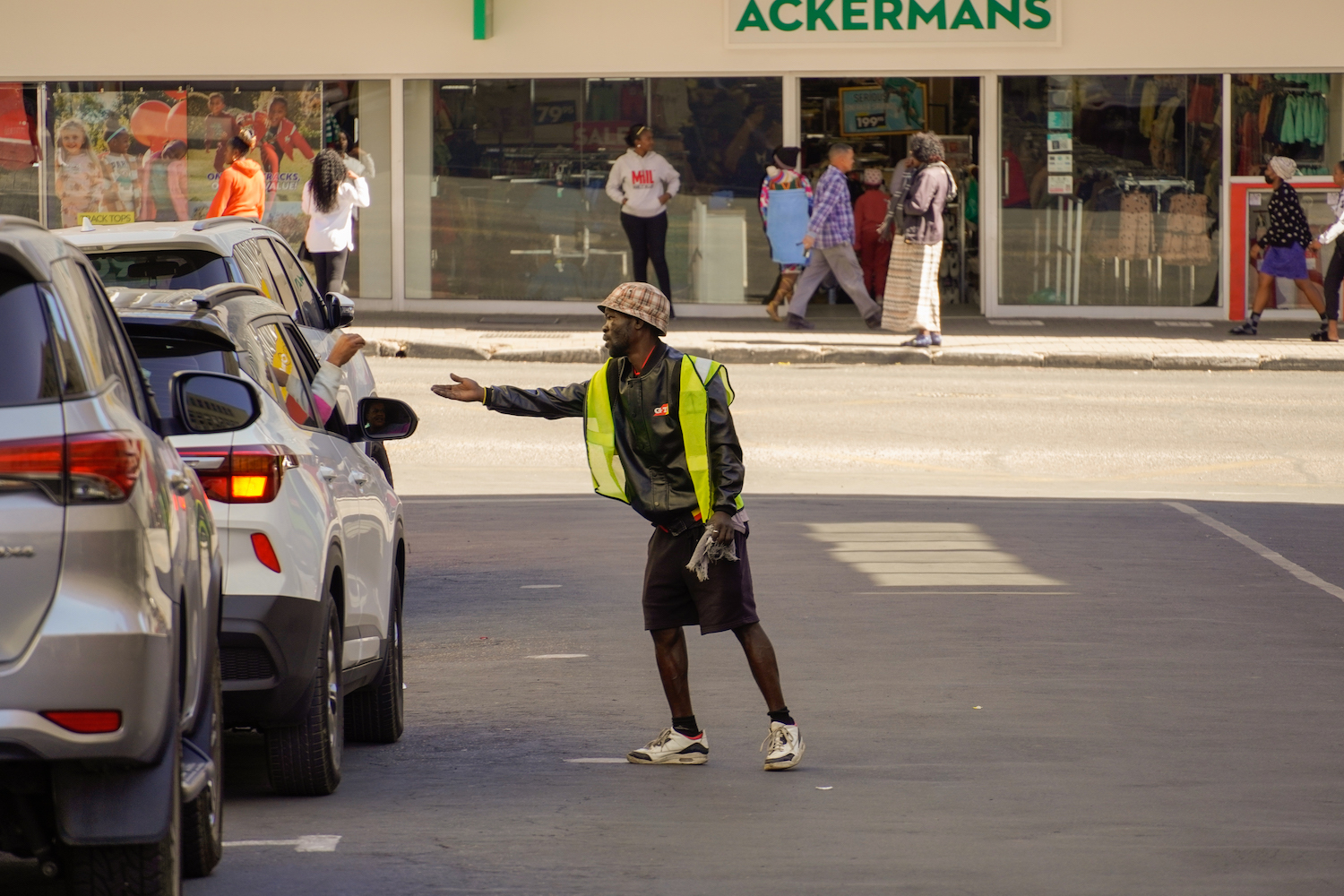
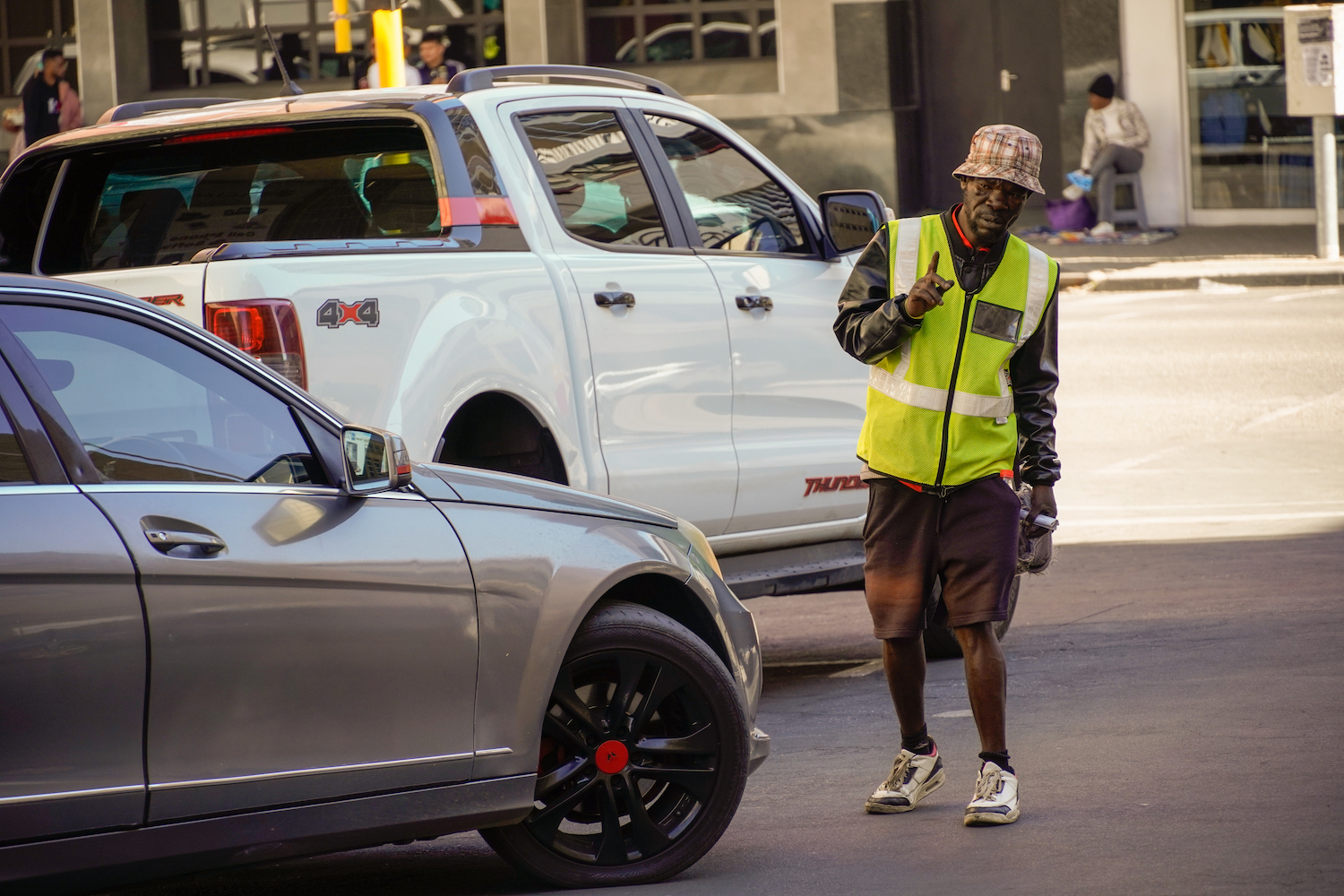
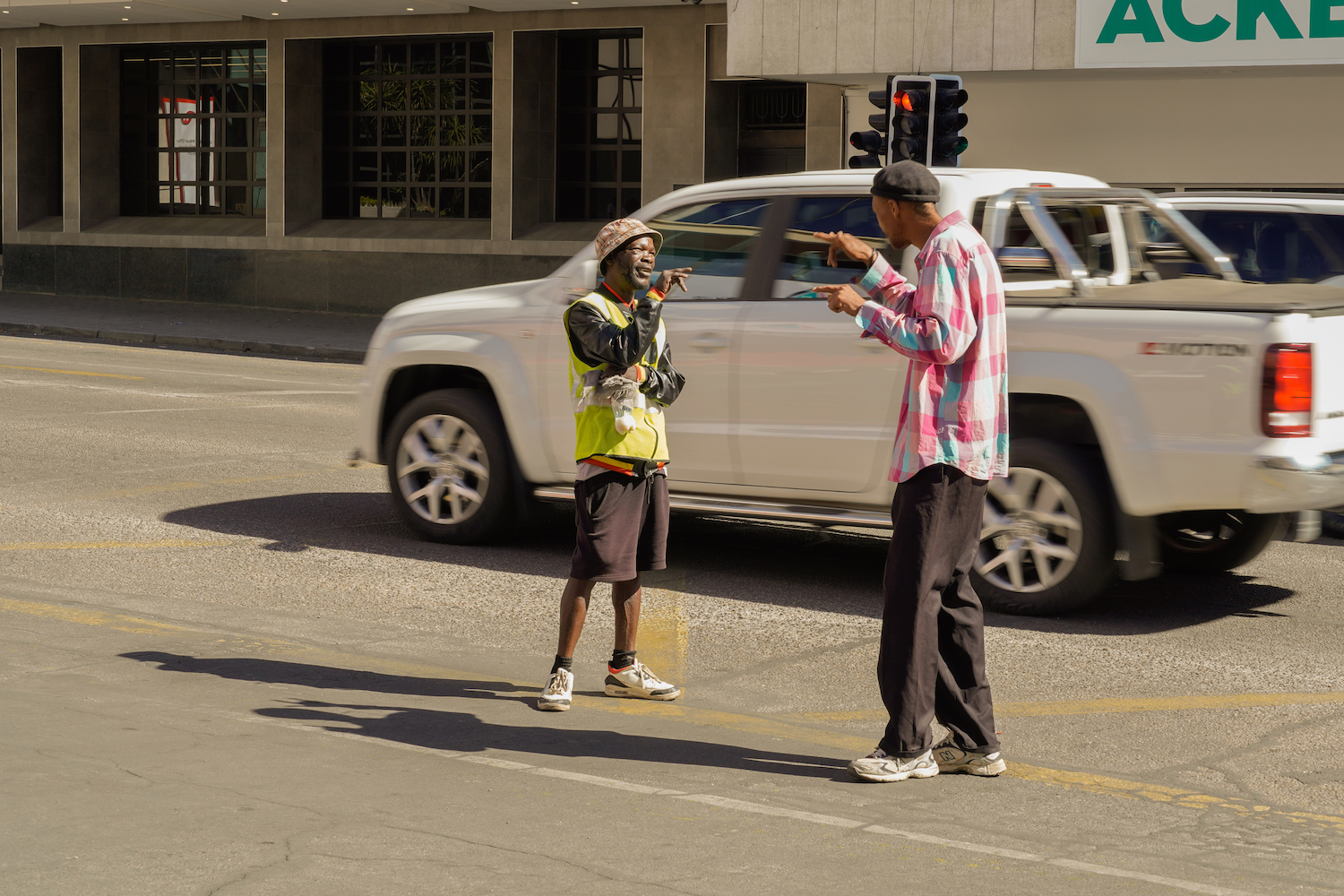
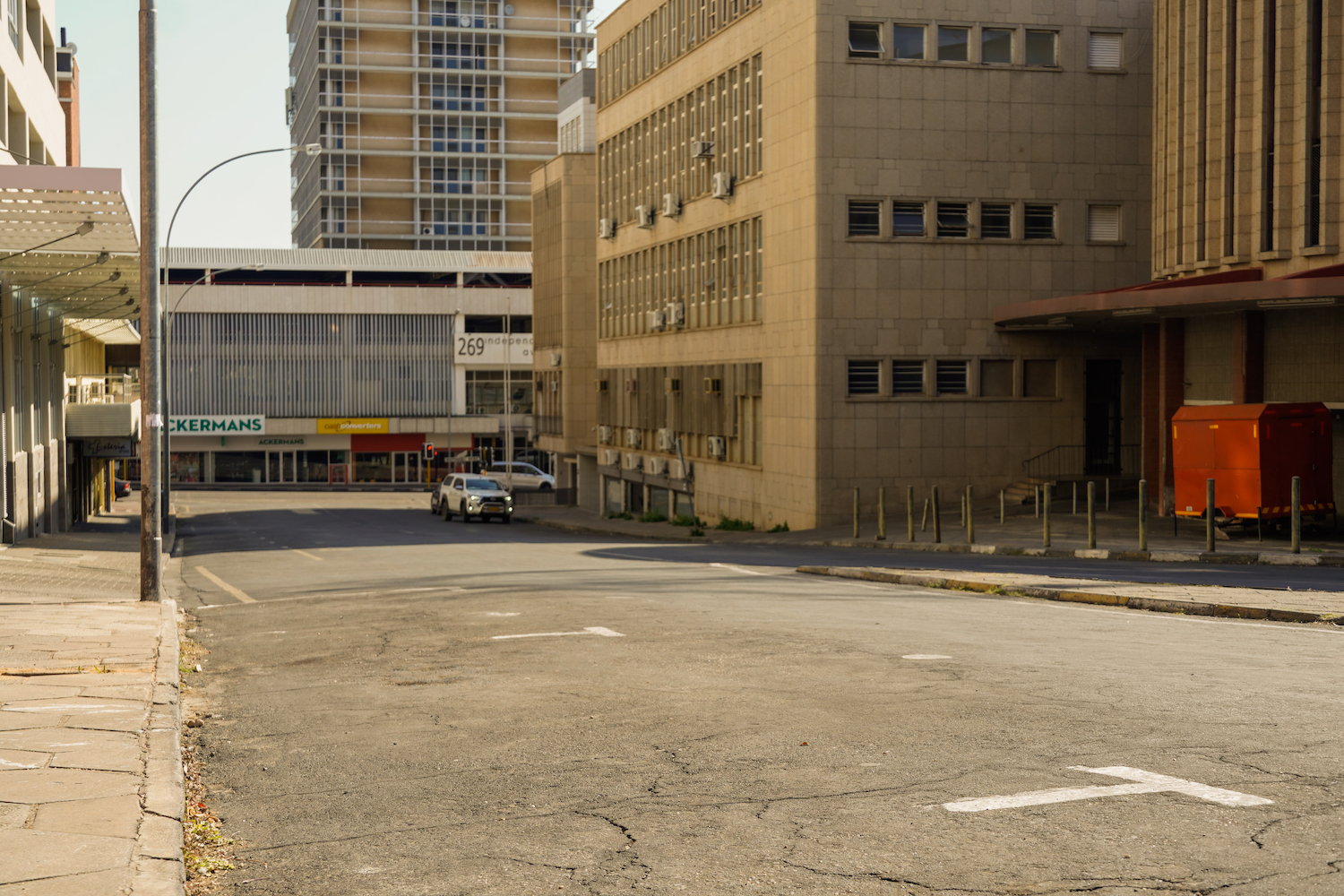
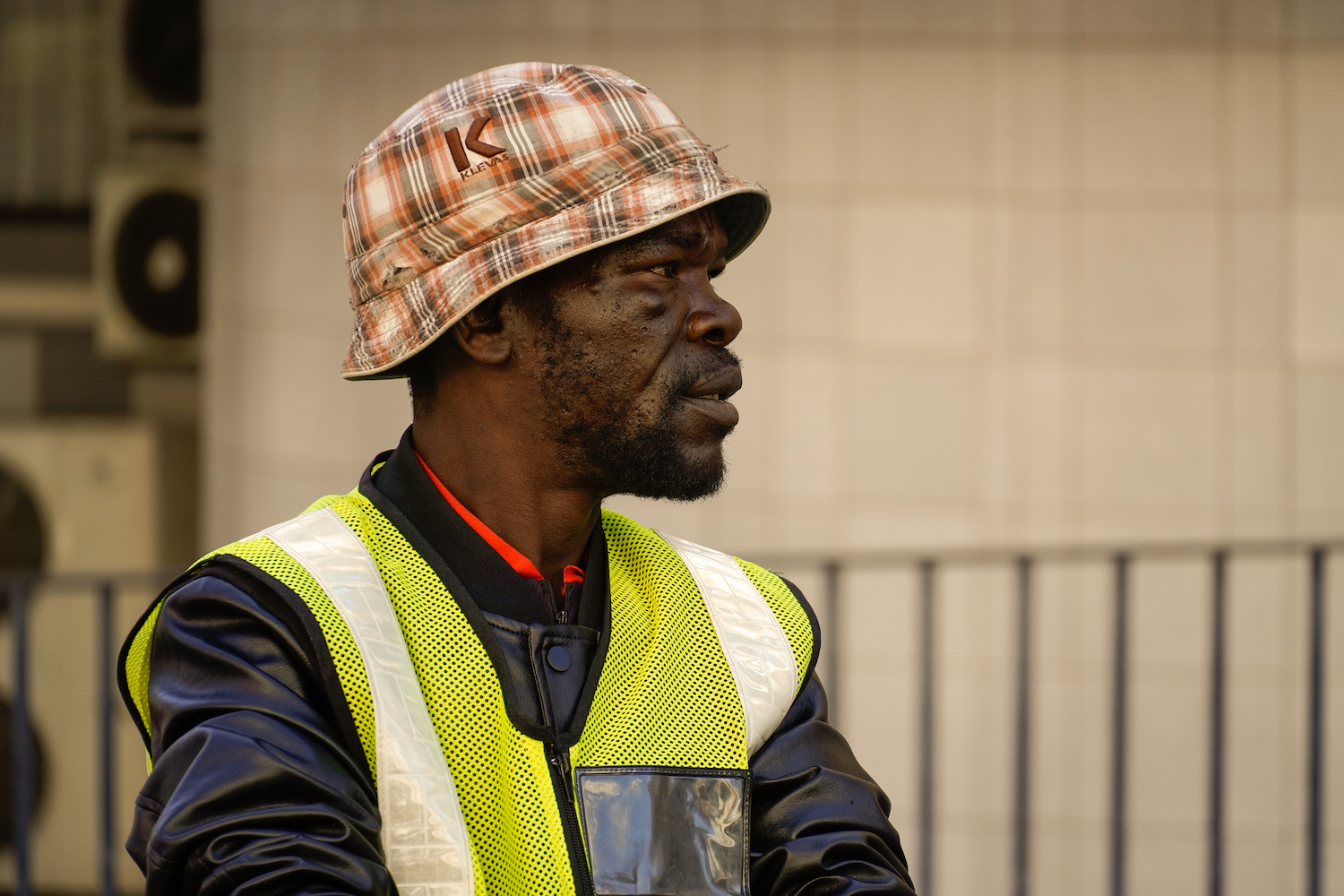
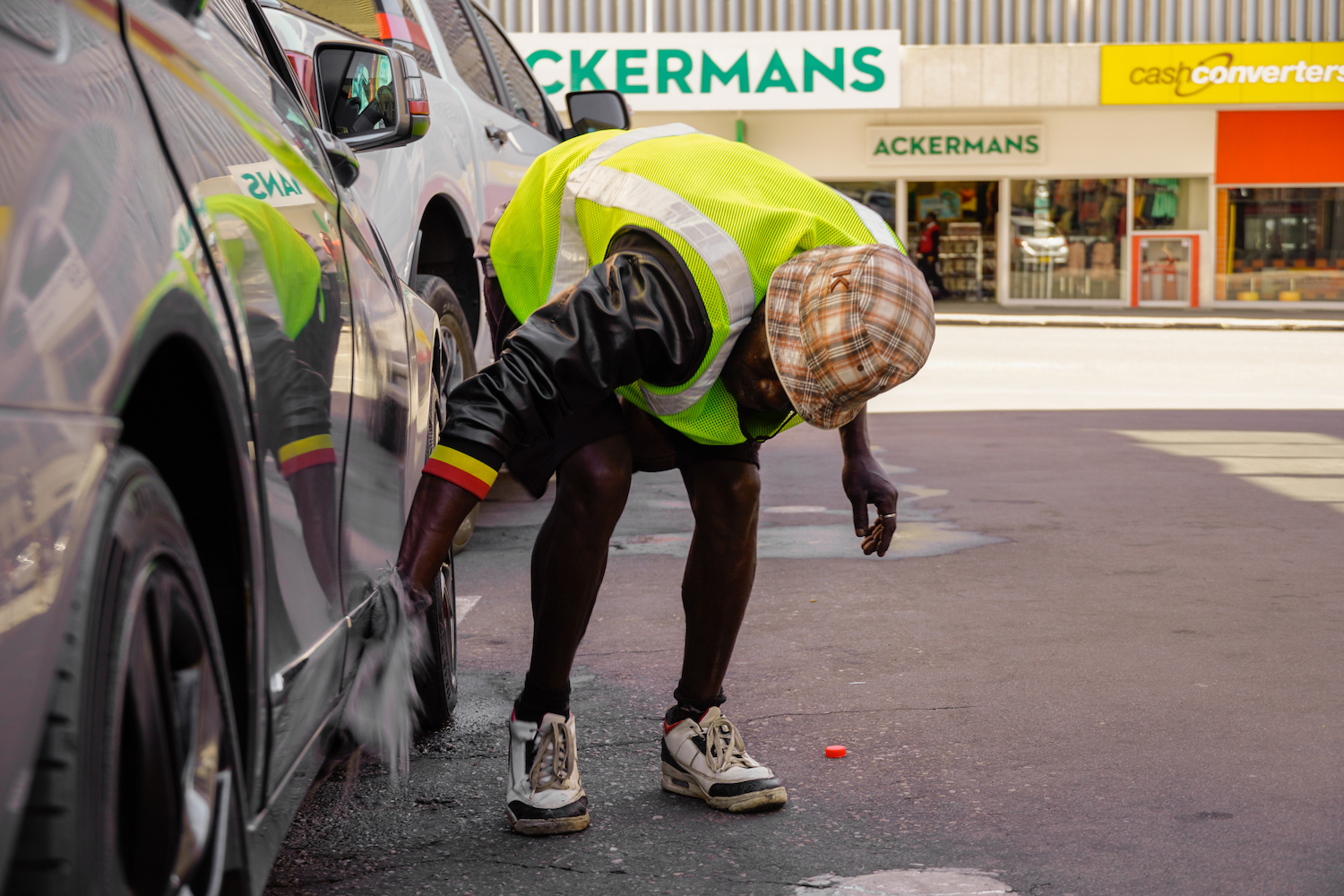
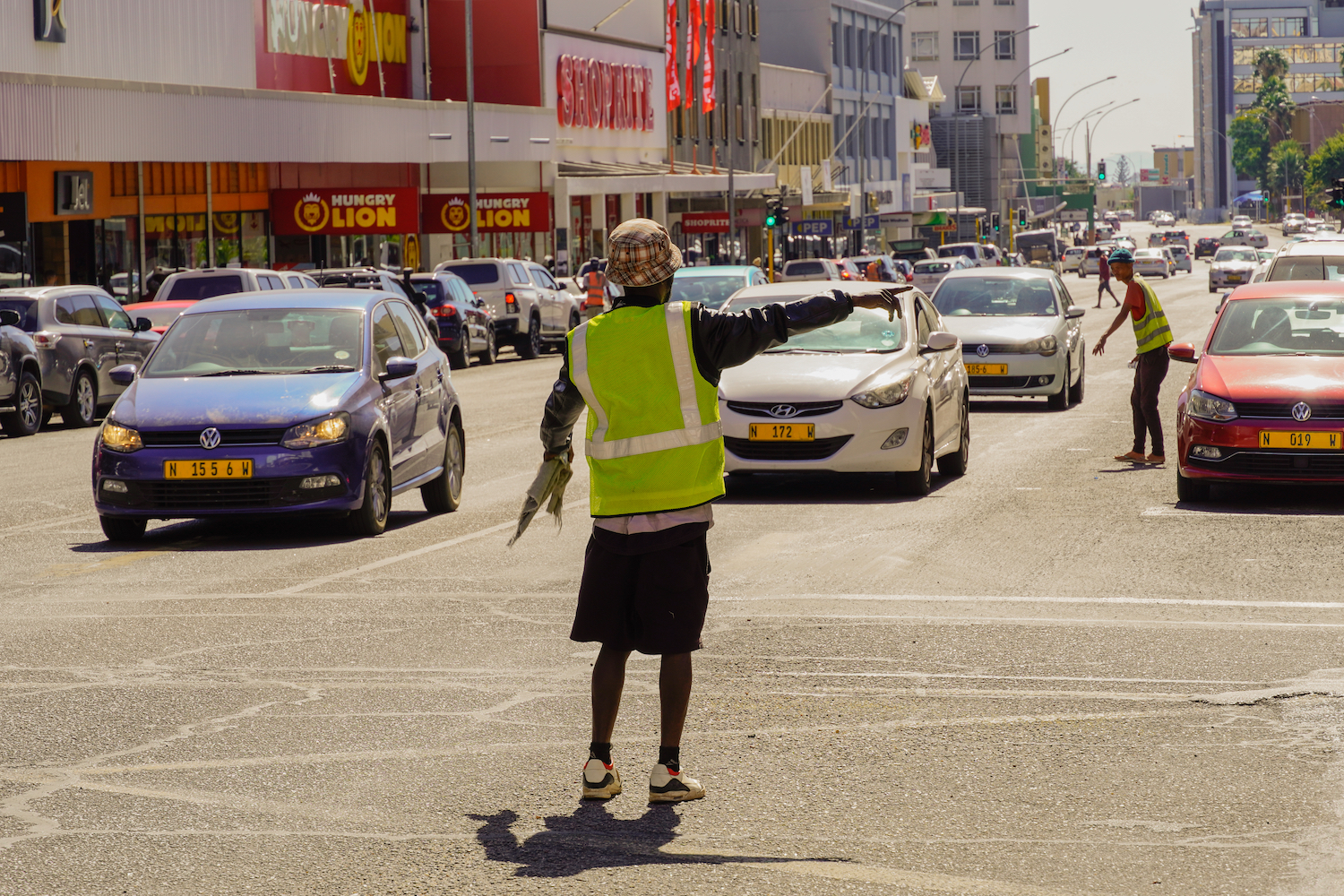
Natache Sylvia Iilonga practises as a registered professional architect and multi-disciplinary creative in the realms of architecture, public space installations, research, and photography. She is from the ever-expanding city of Windhoek, Namibia.